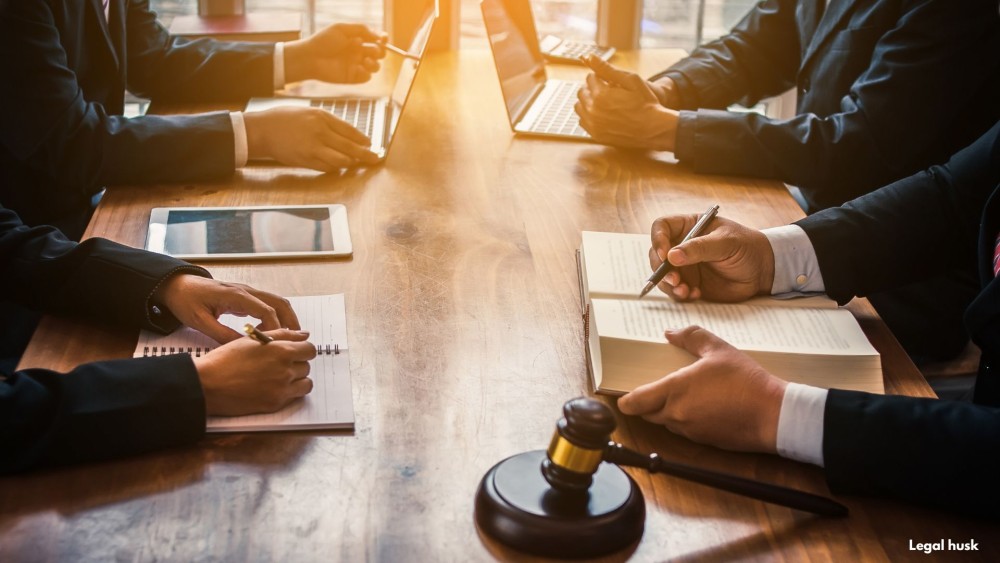
The filing of a complaint is only the beginning. Discover how strategic motions can shape—or even end—a case before it ever reaches trial.
After a civil complaint is filed, defendants aren't limited to simply answering the allegations. They can—and often should—respond strategically through motions. Motions can dismiss, delay, narrow, or shift the focus of a case before discovery even begins.
In this article, Legal Husk explores how motions function as critical tools for defendants after a complaint is filed, and how plaintiffs should anticipate and counter them.
A motion is a formal request asking the court to make a decision about a particular issue before trial. When filed after a complaint, motions typically seek to:
Dismiss all or part of the complaint
Strike improper claims or allegations
Request more definite statements
Change venue or jurisdiction
Used effectively, motions can significantly shape the course of litigation—or even end it entirely.
One of the most common motions filed after a complaint is the motion to dismiss.
Grounds for dismissal include:
Failure to state a claim (e.g., insufficient facts or legal grounds)
Lack of jurisdiction (subject matter or personal)
Improper venue
Insufficient service of process
If successful, a motion to dismiss can eliminate a case early, saving time, resources, and exposure.
If a complaint is vague or ambiguous, a defendant may file a motion for a more definite statement under rules like Federal Rule of Civil Procedure 12(e).
Purpose:
Clarify allegations
Force the plaintiff to specify claims
Prepare a proper and informed defense
This tactic pressures plaintiffs to tighten up weak pleadings—or risk losing credibility.
Defendants can also file a motion to strike to eliminate:
Redundant, immaterial, or scandalous allegations
Improper prayers for relief (such as damages not allowed by law)
Motion to strike can streamline litigation and remove prejudicial language that could sway a jury later on.
Other post-complaint motions include:
Motion to transfer venue: Move the case to a more appropriate or convenient court
Motion to stay proceedings: Temporarily halt the case pending arbitration, settlement talks, or resolution of related matters
These motions can significantly delay proceedings or shift the battleground in the defendant’s favor.
Plaintiffs drafting complaints must anticipate these common attacks by:
Pleading sufficient facts to meet legal standards (not just conclusions)
Choosing the correct venue and jurisdiction
Avoiding inflammatory or unnecessary allegations
Organizing the complaint clearly and logically
Strong initial pleadings reduce vulnerability to early knockout blows.
A business plaintiff sues for breach of contract. The defendant:
Files a motion to dismiss, arguing the contract was void for vagueness
Simultaneously files a motion to transfer, seeking a venue more favorable to them
Outcome:
The court denies dismissal but grants transfer, forcing the plaintiff to litigate hundreds of miles away—an early strategic win for the defense.
Motions following a complaint aren’t just procedural hurdles—they are battlegrounds that can determine whether a case ever gets to discovery or trial. Whether you're filing a complaint or responding to one, understanding the role of early motions is crucial to litigation success.
At Legal Husk, we equip legal teams with pleadings and strategies that survive and thrive against the first wave of motion practice.
From drafting airtight complaints to defending against early motions, Legal Husk builds strong foundations for litigation success—starting with your very first filing.
📌 Need help drafting pleadings that can withstand aggressive motion practice?
👉 Visit:
🔗 legalhusk.com
🔗 legalhusk.com/services
🔗 legalhusk.com/about-us
Start strong—start with Legal Husk.
📩
Ready for a court-ready complaint at a predictable price? Contact Legal Husk and let us draft your next complaint with precision and clarity.
Whether you are dealing with a complex family matter, facing criminal charges, or navigating the intricacies of business law, our mission is to provide you with comprehensive, compassionate, and expert legal guidance.